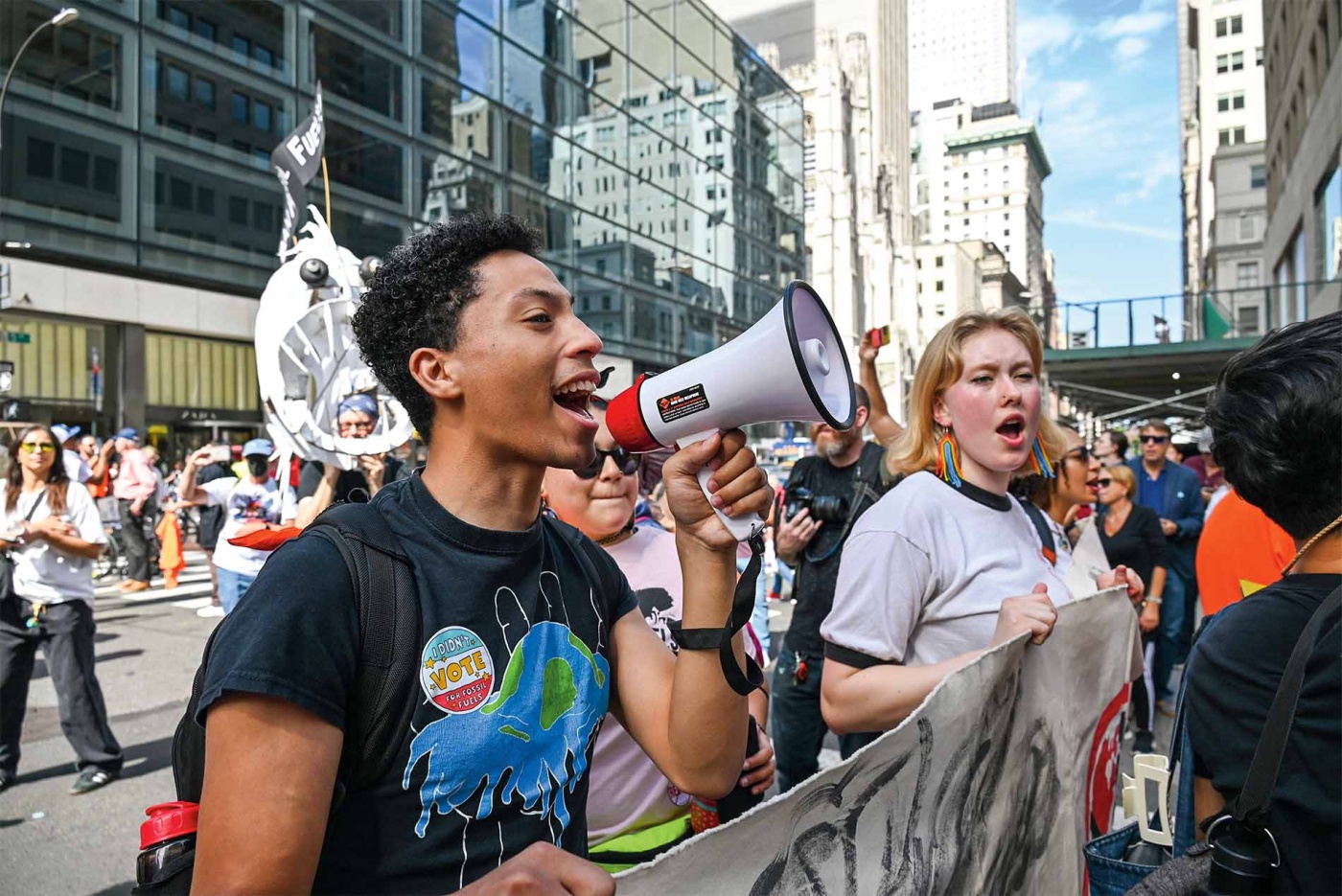Zanagee Artis ’22 has to wonder if he’s been cast in a very bad version of Groundhog Day.
He was still in high school when Donald Trump first won the presidency. A 2017 summer program led to conversations about politics and the environment and eventually the founding of Zero Hour, which organized a youth climate march in 25 cities around the world in July 2018.
“We were all too young to vote for the people who made the decisions that led us here,” says Artis, who cofounded the group.“We have to fight for the future that we want to see.” Zero Hour supports young people interested in climate activism by leading trainings and providing resources as entry points.
Artis admits that he carried a naïveté about the nature of political change during those early days. “We’re gonna get all the young people on board. We’re gonna march on Washington,” Zanagee remembers thinking. “And they’re all gonna change. That’s how democracy works, and our elected officials will listen.”
“That’s not at all what happens,” he says now, seasoned by seven years of climate activism. He was encouraged by the Biden administration’s efforts to end oil and gas extraction on public lands and waters, but ultimately the courts reversed these policies.
Oil and gas production has soared to record highs in the United States. Now, the movement faces a demoralizing second Trump administration.
“I would be lying if I thought that our chances at a livable future were not severely diminished by this election,” says Artis.
Currently on hiatus from Zero Hour, Artis is still in the climate fight. A policy advocate at the Natural Resources Defense Council, he campaigns to end oil and gas exploitation, offshore drilling, and Arctic encroachment. While he put off law school to keep organizing, he’s now contemplating a “break” to add that arrow to his quiver.
“I think a lot of organizers don’t know what’s next, but we are committing to continue to do climate work and to do advocacy,” he says. “There’s still a lot to fight for, and we’ll get what we can get.”
The vast majority of people view climate change as a problem, just not a problem that impacts them personally. “They don’t perceive the risk of climate change as something that will impact them economically or financially, or force them to relocate or move,” he says.
“There is no place on earth that will be isolated from the impacts,” he says—a reality savagely delivered by Hurricane Helene and the rampant wildfires in Los Angeles County. “The United States is the biggest producer of crude oil and gas in the world, and also has a population that is complacent on climate change. So that’s our task, to get those people involved and actually make sure that the U.S. is the leader in the world on climate solutions.”
“We will inherit a planet devastated by climate change if action isn’t taken to phase out fossil fuels,” he says.





